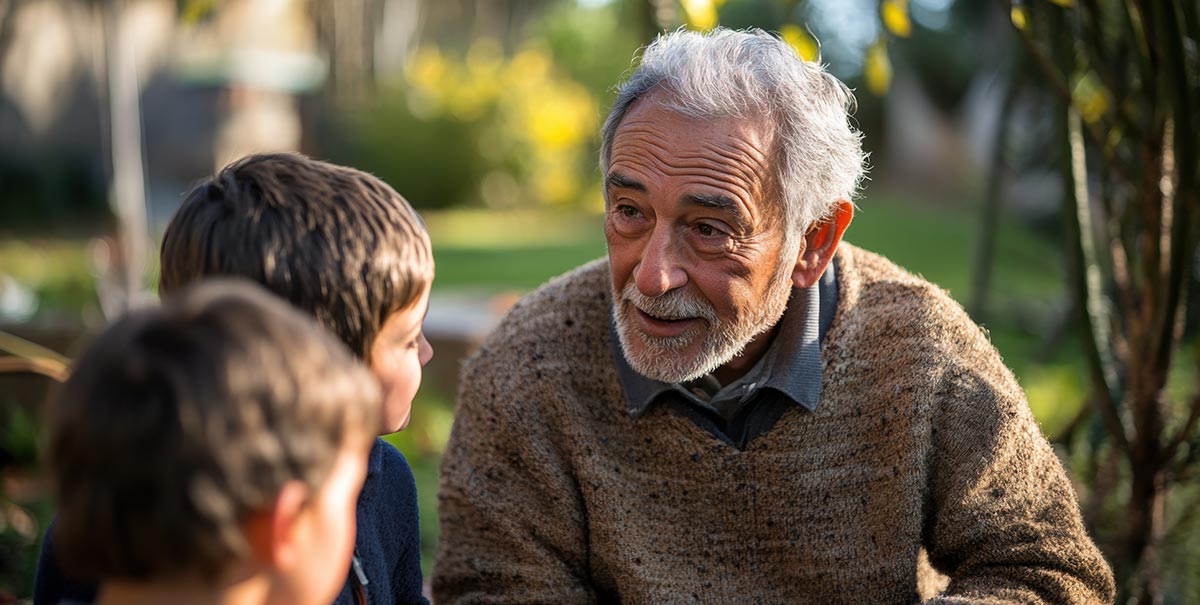The Stories We’re Born Into
Long before we tell our own stories, we’re living inside someone else’s.
We’re born into family narratives — shaped by the choices, sacrifices, failures, and silences of those who came before us. Some of these stories are passed down through words, in the form of bedtime tales, kitchen-table recollections, or half-remembered memories shared on holidays. Others are inherited through gestures, unspoken expectations, or the quiet tension that fills a room after certain names are mentioned.
In my case, those stories began in southern Italy, in a small village I’ve only ever known through photographs and the careful retellings of my parents. They left it behind for New Jersey sometime in the late 1960s, carrying nothing but a suitcase, their accents, and a very specific idea of what life could be if they worked hard enough. That story — the immigrant story — became the foundation of everything that followed.
And it carried weight.
Gratitude and Pressure
Growing up, I heard it often: “We came here for you.” My parents said it with love, but also with a kind of finality. It wasn’t a threat, but it was a burden — the unspoken contract that their sacrifice should mean something. That it should produce something. That I should become something.
To be the child of immigrants is to walk a tightrope between worlds. On one side is gratitude — for the opportunity, for the escape, for the chance to write your own future. On the other is pressure — to succeed, to not disappoint, to justify the decision they made before you were even born.
In school, I tried to fit in. At home, I was expected to remember who I was. I learned early that language has layers: the English I spoke with friends, the Italian I heard over dinner, and the silent code of expectations that lived between the two.
The result was a deep sense of purpose — but also a quiet confusion about who I was doing all this for.
What We Carry Without Realizing
There’s a certain kind of inheritance that has nothing to do with money or property. It lives in how we react to conflict. In how we treat work. In what we believe we’re allowed to want.
For years, I believed I had to be useful — that rest was indulgent, that art was a luxury. My father never took a sick day unless he physically couldn’t get out of bed. My mother once told me, “If you have time to sit down, you have time to clean.” That was the ethic. That was the story.
And yet here I was, years later, alone in a house in New Mexico, trying to write books — struggling with the guilt of doing something that didn’t always feel tangible or necessary. I had inherited not only their work ethic, but their fear of failure, their resistance to indulgence, and their discomfort with stillness.
The weight of that inheritance was subtle, but constant. And I had to learn, slowly, how to set some of it down.
Rewriting the Narrative
It took me a long time to realize that honoring your family doesn’t mean living the exact life they imagined for you. Sometimes, it means asking different questions. Sometimes, it means choosing a life they couldn’t picture — not because they lacked imagination, but because they were too busy surviving to dream.
As a writer, I began to see that storytelling wasn’t just something I did professionally — it was something I had inherited. My father told stories through his hands — building, fixing, shaping. My mother told them through food — remembering people by the dishes they loved, measuring time in holidays and flavors. And in their own ways, they were both trying to preserve something — something fragile and essential.
So I started writing not to escape their story, but to understand it. To expand it. To hold both the gratitude and the grief, the duty and the desire, the past and the possibility.
Letting Go, Holding On
We can’t outrun the stories we inherit. But we can choose how we carry them.
Some parts we keep — the work ethic, the sense of family, the humility. Others we examine and slowly let go — the shame around failure, the fear of taking up space, the instinct to keep quiet even when something needs to be said.
Writing, for me, has been a way of sorting through that inheritance. It’s how I ask the questions that don’t get asked out loud in my family. It’s how I make peace with the parts of myself that don’t always feel like they belong.
And maybe, if I do it well, it’s how I pass along something better — not a blueprint, but an invitation. Not a demand to succeed, but a permission to be whole.
In the End, We’re All Storytellers
We’re all living in stories that began before us. And whether we realize it or not, we’re shaping the stories that will outlast us.
The question isn’t whether we carry weight — it’s what we do with it. Do we let it crush us? Do we pass it along without thought? Or do we examine it, learn from it, and try to carry it more consciously?
My parents gave me a story of sacrifice, resilience, and hope. I’ve tried to write a story of reflection, complexity, and truth. Both matter. Both have something to teach.
And somewhere between them — in that tension, in that distance — is where I’ve found my voice.
